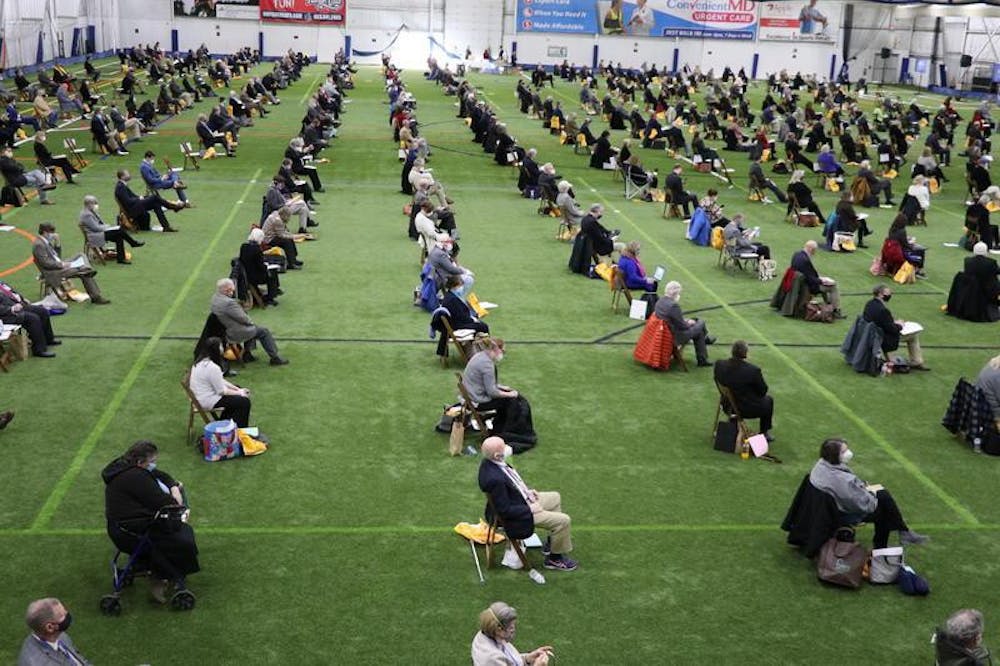Two bills seeking to place some limits on abortion within New Hampshire passed the New Hampshire House of Representatives last month and have been introduced in the Senate, setting up a heated battle over the polarizing social issue.
The two bills passed in the House last month include HB625, the “Fetal Life Protection Act” and HB233, the “Born Alive Infant Protection Act.” HB625 would prohibit health care providers from performing an abortion past a fetus’ gestation of 24 weeks, threatening felony offenses for providers and businesses who do not comply. Under HB233, health care providers including abortion providers would be required to give “lifesaving nourishment” to any fetus that is “born alive” as a result of an abortion. Versions of both the bills passed were introduced during last year’s session, only to be voted down by the then-Democrat majority.
While HB625 passed on a party line vote with strong opposition from Democrats (197-152), HB233 was not originally scheduled to be voted on until the next day, but Republicans moved the bill up. As a result, most House Democrats left the building, an indoor sports complex where the House met to allow for social distancing, in an effort to not give Republicans a required quorum in order to hold a vote. This resulted in Republican leadership locking the doors of the complex in an effort to prevent Democrats from leaving, ultimately resulting in many Democrats to be locked out while the vote took place, resulting in a 189-44 vote in favor.
This contentious day for the House congregation showcases the polarizing nature of abortion in the state of New Hampshire. In an NPR/Marist poll from 2019, 57% of Granite Staters self-identified as “pro-choice” with only 35% self-identifying as “pro-life.” Despite this, 61% of those surveyed said they would favor some form of increased restrictions on abortion including limiting abortion to the first trimester, or only in cases of rape/incest or when the mother’s life is in danger.
House Republican and sponsor of HB625 Walter Stapleton (R-Claremont) said that he hoped the bill would, “reduce, if not yet completely eliminate, the dichotomy we've had for 48 years between the Right-to-Life of the preborn and the lawful consent granted for abortion under the law." Many Democrats as well as advocates for Planned Parenthood in New Hampshire criticized the bills for criminalizing abortion as well as trying to provide a “one size fits all” approach to an issue where each case is different.
While New Hampshire has not explicitly enshrined abortion rights in state law, New Hampshire is one of only 7 states with no prohibition on time of abortion. Neighboring states Maine, Rhode Island, and Connecticut prohibit abortion after the point of viability, typically seen at around 24 weeks of gestation, Massachusetts restricts abortion at 24 weeks, and Vermont has no restriction. While New Hampshire has some of the most relaxed abortion restrictions, the state currently does not provide any public funding for abortions except in cases of rape, incest, or maternal danger.
Based on previous votes on abortion laws in past years, it is expected that the Republican-controlled Senate will vote to pass these restrictions. Despite this, Republican Gov. Chris Sununu has not yet come out in support or against the bills. Sununu, who has in the past described himself as a “pro-choice Republican,” has largely tried to avoid the topic of abortion in his four and a half years as governor. During his time serving on the Executive Council, Sununu has voted both in favor of Planned Parenthood funding in 2011 and 2014, and was then the deciding vote to defund Planned Parenthood in 2015. During the 2016 gubernatorial election, after once again voting in favor of funding Planned Parenthood, Sununu made a pitch to pro-life voters saying that, “It is important for conservative voters to know that I, too, support many of the commonsense platforms’ initiatives that they want to see passed, including: a fetal homicide bill, the Women’s Health Protection Act, a late-term abortion ban.”
The two abortion bills were delivered to the Senate and assigned to the Judiciary committee in early March, but it is not yet known when any hearings will be held on the two bills.
Photo courtesy of Dan Tuohy/NHPR.












